Photographs: Ajay Verma/Reuters Mayank Mishra in New Delhi
The Congress seems to be planning to exceed the 200 million mark this time, as it has to make up for the loss it is likely to suffer among urban middle class because of a spate of corruption cases and a decelerating economy, says Mayank Mishra.
The promise was made in 2009 and the first draft was ready in 2011. But the Union Cabinet finally gave its nod to the draft food Bill only in March this year.
There is a great rush now to make food entitlement a legal right for nearly 70 per cent of the country’s population. The rush might seem irrational but does it make some political sense?
Look at the 2009 general elections. Bucking the anti-incumbency trend, the Congress-led United Progressive Alliance (UPA) government managed to win a second term in 2009, a feat many people thought was achieved on the back of sops offered to nearly 200 million voters.
…
Is the Food security Bill a political gimmick?
Photographs: Jayanta Dey/Reuters
Here is how it happened. Just a few months ahead of elections, the government announced a massive farm loan waiver scheme that positively impacted 37 million households.
Nearly 52 million households had reaped the benefits of the Mahatma Gandhi National Rural Employment Guarantee Scheme (MGNREGS). And, implementation of the recommendations of the Sixth Pay Commission benefited five million central government employees and their families.
With a combined cost of Rs 1.09 lakh crore (Rs 52,000 crore for loan waiver, an annual Bill of Rs 35,000 crore for MGNREGS and an additional burden of Rs 22,000 crore for pay hikes in 2008-09), the UPA-I managed to …
Is the Food security Bill a political gimmick?
Image: A child has his breakfast at a flood relief camp in Purniya district town of Bihar.Photographs: Rupak De Chowdhuri/Reuters
The number of actual beneficiaries would have been slightly less than this number because of overlapping between MGNREGS and the farm loan waiver. There were families who benefited from both schemes.
Assuming at least two members with voting rights in a family, this translated into a base of nearly 190 million voters whose lives were positively impacted by government sops. Incidentally, the Congress managed to get 120 million votes in the 2009 Lok Sabha elections.
“The combination of social schemes, the perception of the government delivering goods and negative campaign by the opposition helped UPA-I in 2009,” says Anand Pradhan, associate professor at the Indian Institute of Mass Communication.
…
Is the Food security Bill a political gimmick?
Image: Kiran, who is suffering from malnutrition, stands next to her mother Sheil Rani in Balabehat village in Lalitpur district, in Uttar Pradesh.Photographs: Reinhard Krause/Reuters
The Congress seems to be planning to exceed the 200 million mark this time, as it has to make up for the loss it is likely to suffer among urban middle class because of a spate of corruption cases and a decelerating economy.
The direct benefits transfer (DBT) scheme, launched earlier this year, is likely to impact the lives of nearly 100 million families. Assuming operational delays and slippages in schemes of such proportions, at least 60 million families are expected to get the full benefits of DBT before the next Lok Sabha elections.
The rush to push through the food security Bill is intended to achieve the magic mark.
Political commentators are of the view that to blunt the negative impact of double anti-incumbency, the UPA-II has to be seen as doing something like Indira Gandhi’s Garibi Hatao.
…
Is the Food security Bill a political gimmick?
Image: A girl lies on the ground as she cries for food in Akhera village in Haryana.The food security Bill is UPA-II’s ‘hunger hatao’ scheme that, together with “Aapka Paisa Aapke Haath”(DBT), can retrieve some of the lost ground, they say.
The food security scheme, when fully implemented, will cover nearly 800 million people or 67 per cent of the country’s population.
However, to begin with, the needs of the priority households will be fulfilled. This means, in the first year of its implementation, the food security scheme will cover roughly 60 to 70 million families.
Add this to the beneficiaries of DBT and UPA-II most likely will achieve the magic mark of 120 to 130 million families or nearly 250 million voters. Even with some overlapping, UPA-II will still exceed the magic mark of 200 million voters.
…
Is the Food security Bill a political gimmick?
Image: A grocery shop in ChandigarhPhotographs: Ajay Verma/Reuters
The scheme will be rolled out with the help of the Public Distribution System (PDS) and Food Corporation of India, considered to be two of the most inefficient institutions, with estimates of leakages ranging from 40 to 55 per cent.
Subsidy burden
While the food security scheme might make political sense for the Congress, its impact on the government’s finances could be serious. A moribund delivery mechanism is not the only issue that needs serious consideration while rolling out the scheme. The seriousness of its impact on the government’s finances has not been fully understood yet.
According to the government’s estimate, the first year’s food subsidy bill will come to around Rs 1.3 lakh crore. However, experts have come out with a much larger figure.
…
Is the Food security Bill a political gimmick?
Image: Labourers sift harvested wheat in a field on the outskirts of Ahmedabad.Photographs: Amit Dave/Reuters
Economist Rajiv Kumar estimates the food subsidy Bill to touch Rs 1.5 lakh crore in the first year with a cumulative burden of nearly Rs 5 lakh crore in three years.
However, Ashok Gulati, chairman of the Commission for Agricultural Costs and Prices (CACP), estimates the first year burden of around Rs 2.4 lakh crore and three years’ bill of around Rs 6.8 lakh crore. Both these estimates were done last year.
Gulati’s estimate is based on the assumption of annual requirement of foodgrains of approximately 70 million tonnes (mt). However, as per the government’s estimate, the annual requirement of foodgrain will be around 61 mt.
...
Is the Food security Bill a political gimmick?
Photographs: Ajay Verma/Reuters
Going against the trend
Critics have also pointed out that excessive focus on production and procurement of cereals will push the agriculture sector backwards.
Gulati, Jyoti Gujaral and T Nandakumar write in a discussion paper on the National Food Security Bill (NFSB): “Share of expenditure on cereals in total food expenditure has declined from 41 per cent in 1987-88 to 29.1 per cent in 2009-10 in rural areas and from 26.5 per cent in 1987-88 to 22.4 per cent in 2009-10 in urban areas... But at the policy level, the government is still focused on foodgrains and with NFSB is clearly reversing the movement of Indian agriculture from high value items to foodgrains. This will trap the Indian agricultural sector in a low level equilibrium trap, as returns are generally higher in high value agriculture.”
Will such a distortion in the agriculture sector further stoke food inflation? A look at two statements, made in 2011, by two distinguished members of the economic policy making team in the country, is revealing.
...
Is the Food security Bill a political gimmick?
Image: Reserve Bank of India (RBI) Governor D Subbarao.While delivering a speech on food inflation, Reserve Bank of India (RBI) governor D Subbarao had this to say on the food Bill: “Estimates suggest that 68 per cent of the country’s 1.2 billion population will get a legal entitlement for food grains after the Bill is enacted, significantly raising the annual grain procurement demand even as the available marketed surplus would not increase correspondingly. This will create demand pressures, which will inevitably spill over to market prices of food grains. Furthermore, the higher food subsidy burden on the budget will raise the fiscal deficit, exacerbating macro level inflationary pressures.”
And Raghuram Rajan, then an economist, now the chief economic adviser to the finance ministry, had this to say: “Without fixing the food distribution system, without fixing the constraints on food production, on spoilage, on storage, just upping the demand suddenly could create a whole new wave of inflation.”
Do such observations merit consideration when elections are round the corner?

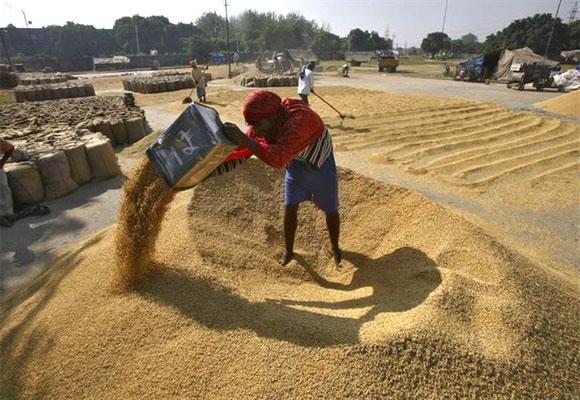
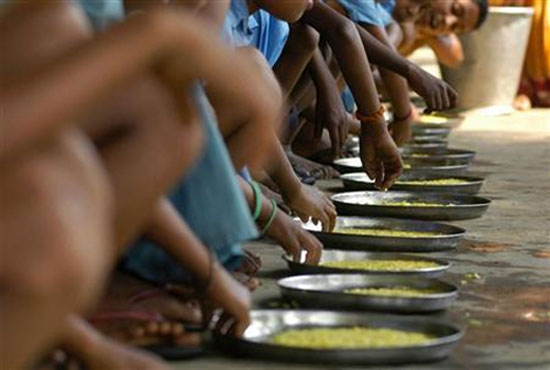
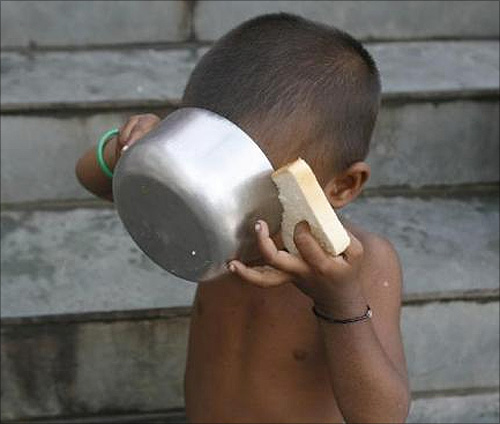
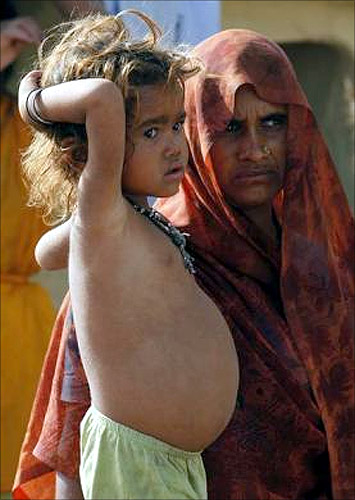
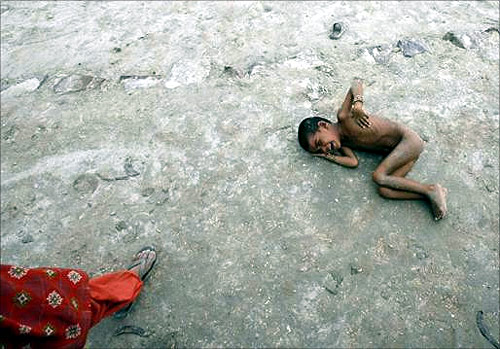
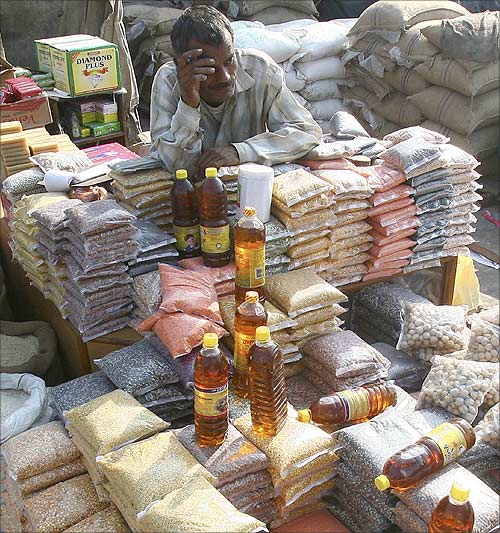
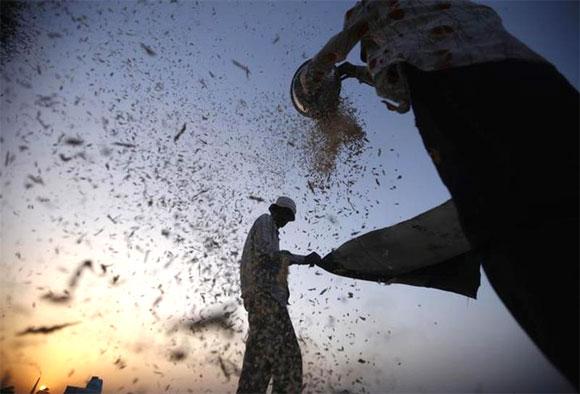
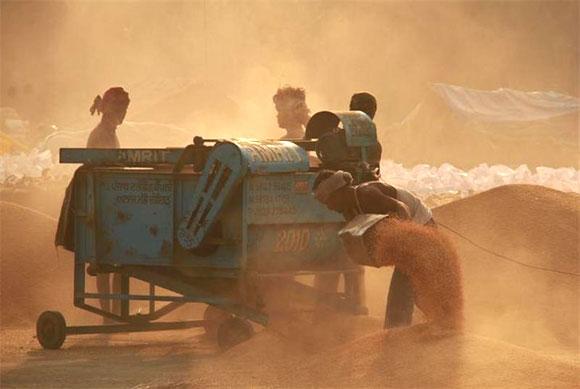
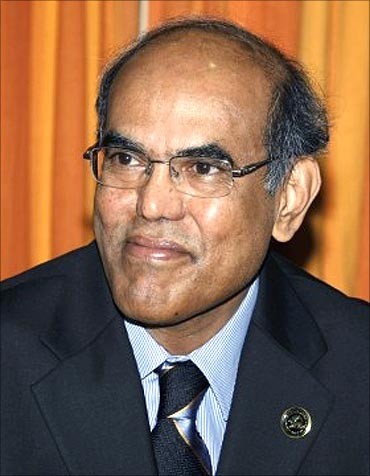

article